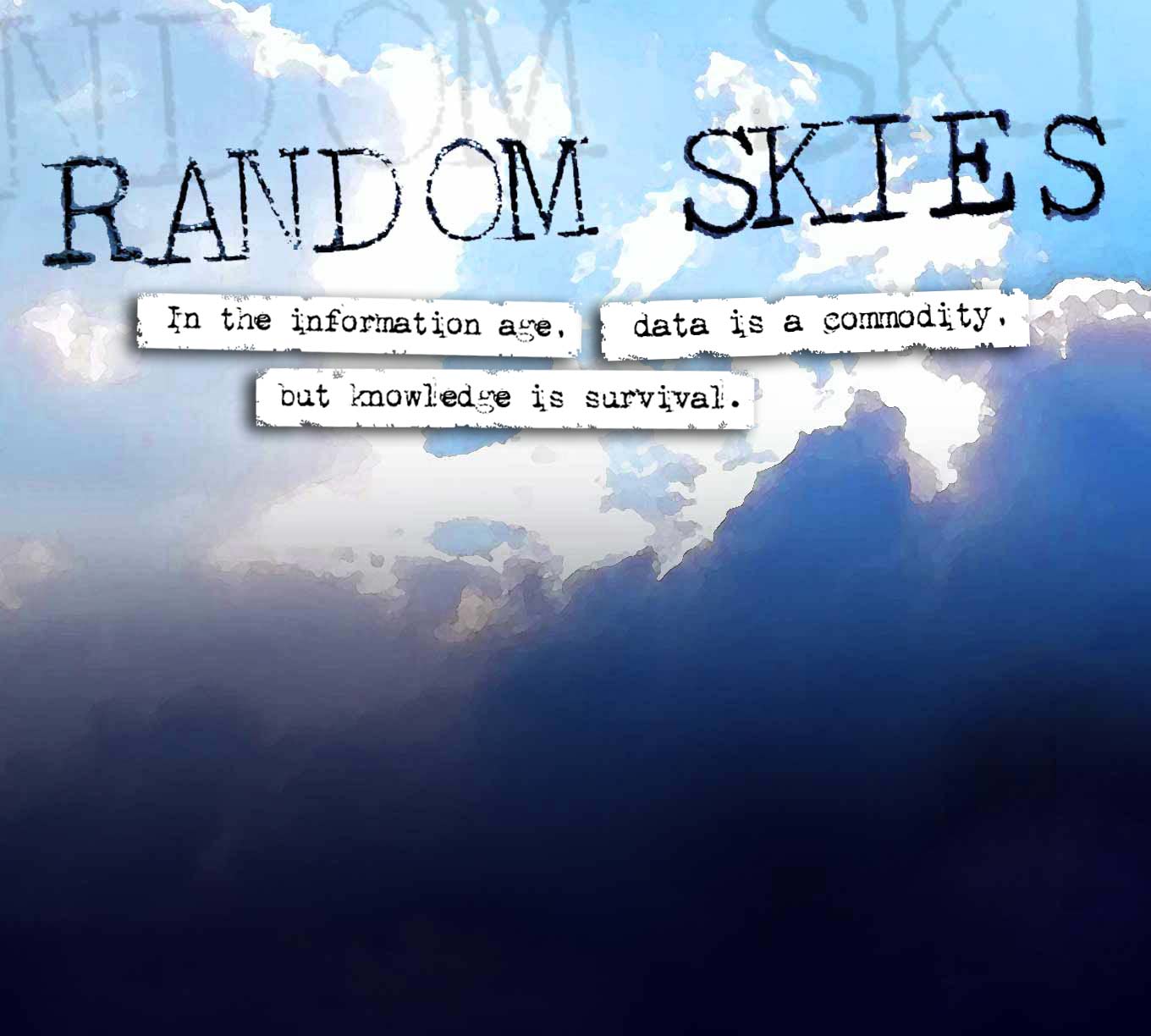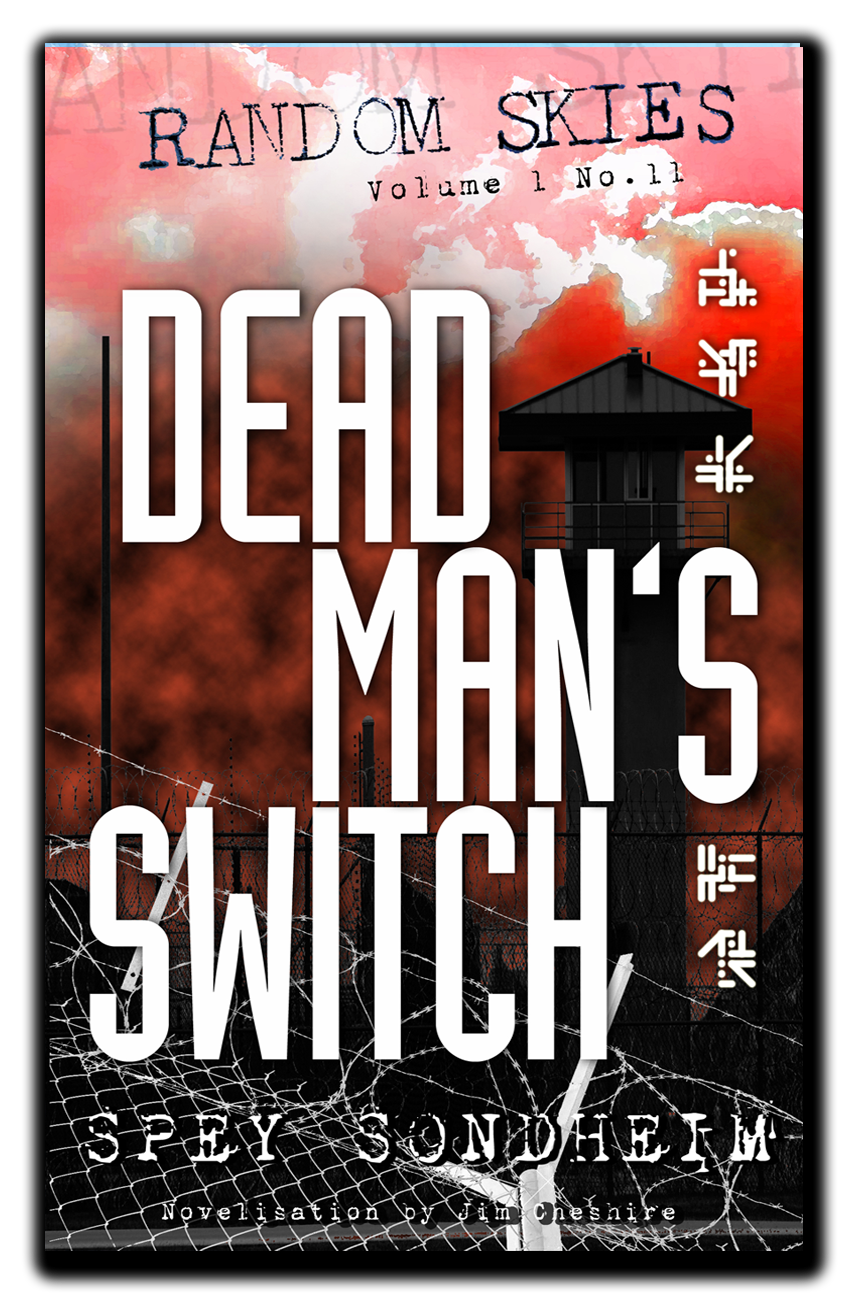2041 - Stiperstones Reach, Shropshire.
The_Gnome is on a quest to find a Zura SkyKruiser that disappeared over the Indian Ocean nine months ago. Dead trees are causing landslips on the mountain side. Reid and Everett have gambled the future of the Quantumhead Binar Exchange on some dodgy intel, and Professor Lapin is upset with Stan.
To top it off, the kids are getting old enough to start asking questions about what the hell is going on in the world.
The single-storey computer centre was the most modern fabrication in the village. The other houses were stone cottages with great thick walls and triple glazing. Their small windows complimented the architecture. In contrast, the computer centre was light and bright with a lot of floor space and an open plan.
Kelt was sat on the floor with Reid and helping to unpack the assignment of boxes from the drone drop. Kelt was at the age when questions of every kind were a backwards and forwards game.
Professor Lapin had taught him that every question must have an answer, and Kelt had become fascinated by the concept. He was past the 'why is an ant an ant?' stage and was keen to see how deep an adult's explanations of 'everything' went.
Reid's patience with the constant gunfire of enquiry was born of pragmatism. He believed it was better that the kids knew sooner rather than later about who they were and why they were here. He treated them all as adults and spoke to them without dumbing down the language.
After making the glib comment that unwrapping all this stuff was just like Christmas, Kelt picked up a favourite subject and needed to know everything about where Christmas had come from, and why it was so important to remember these rituals.
Reid explained that Christmas wasn't always just the villagers celebrating the coming of longer days as the year turned, but at one time, the land was full of farms and families and villages and towns where Christmas brought families together. People you didn't even know celebrated a time of common renewal. It was a shared human experience.
Kelt thought a lot about those other people.
“Ambrose said everyone died.”
“Oh, not everyone.”
“Then Ambrose's dad moved here with my dad and Davey and they built the houses to hide from the police.”
Reid paused with a hard drive in his hand and then put down the box.
“Well, Kelt. It seems you're old enough to be asking serious questions, so you deserve an honest answer. It's true, this place was finished in the years after the great population collapse. Davey, as he's the farmer and land owner, had brought in his local tradesmen and neighbours to swap skills and food so they could all survive.
“As services were cut, like water and electricity, the houses in town became unusable. Also, the police did come round to the towns and clear people out. Then the houses were knocked down and recycled. This little independent village, here on Davey's farm, became a natural retreat. When me and The_Gnome turned up, the great salvage of technical equipment from the empty towns began. The idea of a little computer room in one of the cottages seemed like a good idea.”
“What's salvage?”
“Oh, rescuing things, or saving things to reuse for something else, after they've been... thrown away. Like recycling. We do it all the time. We don't waste anything.”
Kelt pointed at the pile of Styrofoam and cardboard.
“Mum says that things came from the sky all the time. You just asked for new things on the computer and the Anason sends it.”
Reid smiled.
“Oh, Amazon, yeah. At the end, the internet took over from shops. It was the last functioning supply chain, and not just for Amazon's government food deliveries. They were sent by drone, but only served certain city areas, called 'postcodes,' and of course, they had to supply the quarantine camps.
“But internet up-time became increasingly patchy, so people who wanted to be independent, traded skills, knowledge, news and any useful information. Where to come by supplies? At what price? A sadly dwindling list of who to trust and traders to meet. Eventually, that little economy became the hillside bazaars and heavy goods supply yards that sprang up around the country.
“What are the bizarres?”
“Like a row of little shops where people buy and sell things. Often, you did it online then met up to swap stuff for what you needed. That computer room we built became pretty important for village trade, until we needed something bigger. We had Falk to do the building work, Ambrose's dad Magnus to do the electrics and with Billy the carpenter moving in with his family, building this place made practical sense.
“We stockpiled gear, old servers and routing equipment. We generated power with solar, wind and even a basic hydro-electric project from that bomb crater lake up at the top of the hill.”
“What about the Sappak, down in the bunker?”
Reid nodded.
“Yeah, the Satpack too. You need lots of power, not just for computers. There's all sorts of machines to run, batteries to keep on charge. When we came by the Satpack in thirty three, we had all the power we needed to run the village. We could expand the computer operation in any direction the technology would allow. That's probably why we're still here.”
Kelt was such a good listener that, without interruption, Reid was able to wander into his own recollections of the past. He avoided nothing when he instructed the children, figuring that they would never be too young to know. As Kelt unwrapped plastic packs of parts, Reid screwed drives into chassis, fitted power and data cables and laid them all out next to one another.
“As with all installations, this place develops, evolves and decays in line with the ever-changing conditions. At the time this place was built, there were no new computer stations, because modern interfaces were useless outside the city and its wi-fi web with its satellite surveillance.”
“Why couldn't you use their new computers?”
“Hmm? Oh, well, you could say that the online world slowly tightened its grip on the individual. Many years ago, you just fired up the computer and used it. Gradually, that changed. It went from log-ons requiring an 'account' with a name and then a password, to questions of personal identity like the name of your first pet, or your mother's maiden name. Then you needed an email address in case you forgot your password, then a second email address in case you forgot the first one, and then a telephone number.”
Reid smiled as he remembered those simple times.
“Once the phone company's records were involved, that would give your chosen operating system a home address, and indirect access to your bank account and from the Inland Revenue's records, your social security details, employment history and a list of permissions such as driver's licence with photograph or your passport for international travel. The device then required either a fingerprint or face recognition 'so that, for your safety and “privacy,” we can be sure it really is you.'
“Then we got compulsory Global ID rolled out in thirty two, and the trap was sprung on the last hold-outs. The new generation of workstation, GLiD and tablet chips now required the most intimate connection to the body's implants in order to work at all.
“The implants were put under your skin, and confirmed your ID with pure biometrics. It reported your permanent DNA, your current RNA modifications according to your vaccine passport, and an internal scan of your brain's chemistry and wave patterns to confirm that you were in a fit state to access their internet.
“After all, nobody wanted to encounter hate speech, conspiracy theories or upsetting information online. Or, come to that, have the alpha wave tranquillity of dozing in the Dreemfeelds' metaverse interrupted by the world they were trying to shut out.”
Kelt barely understood any of Reid's musings, but was horrified by the thought.
“Where are my implants?”
“Oh don't worry, you haven't got any. None of us do. At least, not any more. But the GLiDs could only be issued when people had willingly taken the implants. Most of them didn't bother to research the connections they were making. They just trusted the government. So, new computer devices no longer needed a back door built into the CPU. The chip itself was the government's way in, so that they were already in there, waiting when you were issued with the device. Through your account log-in, you were 'allowed' to interface with the beast, like putting your head in a lion's mouth.”
Kelt thought that was kind of funny, especially Reid's poor impression of a pouncing lion. He handed Reid another packet of chassis screws.
“So why do we need all this, then?”
“Because you always need more storage space. I know that stupid rabbit keeps telling you about something called 'the cloud,' but he's a little out of date. The darknet used to be fine for storage, but like all things in 'the cloud,' one sunny day it could all disappear. Nothing's guaranteed for sure and off-site storage should only ever be one of a system's data back-ups.”
“Where does it go?”
Reid enjoyed the simplicity of a child's logic, nowadays. He'd forgotten how intimidated he was by the kids' enquiries when he first arrived, but since he and Deena had produced Merlin and now Ismelda, he had properly mellowed into fatherhood.
“It doesn't go anywhere, mate. It just gets overwritten. Or the drive gets trashed. Which is why our new friend, Mister Whelan, is important. We had less and less space to run our site on the darknet until he turned up. Me and Gnome did what we could with the old equipment because we knew how to get on the internet with fake IDs and other techniques you'll learn all about.
“Now we're running Quantumhead, where all our friends can meet and talk. We just have to be careful not to run into trouble with the bad guys who try to catch us out.”
“Why are they trying to catch us?”
That was a tough one to synthesise into an answer for a six year old. Even one as advanced as Kelt.
“Umm, well, you've seen the boards and the forums. There used to be a lot of sites like that, but they've all died away and their customers all come to the survivors like us. Techies, Binar scavs, just people looking for information. And the government don't want you to have any information that hasn't come from them.”
Kelt had opened his mouth ready, but Reid knew it was coming and ploughed on.
“Because if they can hold everyone's attention, the public will never look anywhere else for answers to their problems. That's why they want to stop people like us from talking. Trouble is, the bigger we get, the more attention we get from the police. We always seem to have enough resources to take on more darknet refugees. So they reckon, we must be some big city datacentre operation with lots of resources.”
Reid sighed and looked around.
“Right now, that illusion is probably our best defence.”
Random Skies: Dead man's Switch is the eleventh episode in a series of speculative fiction set in a parallel world where the surely unthinkable has already started to happen.


